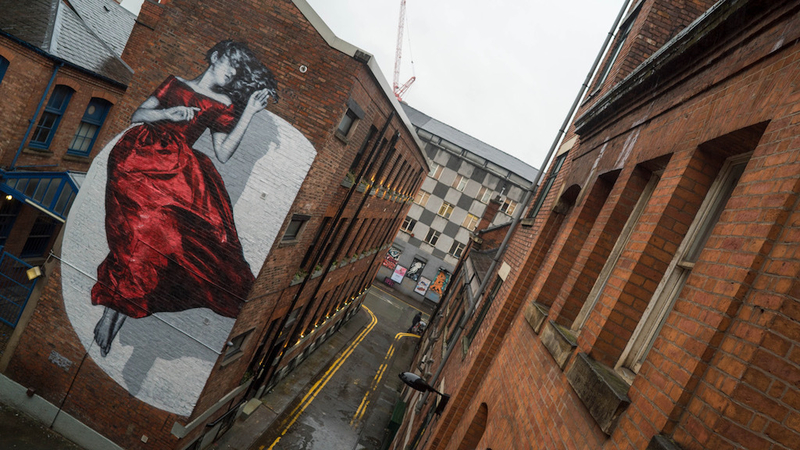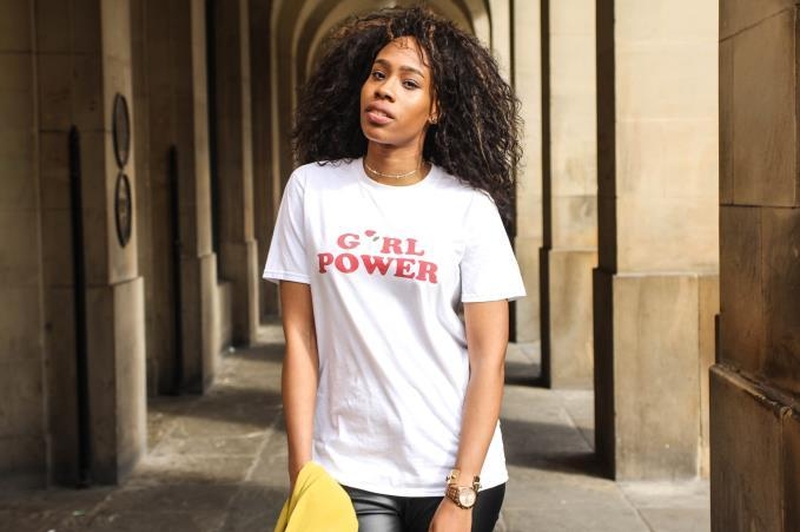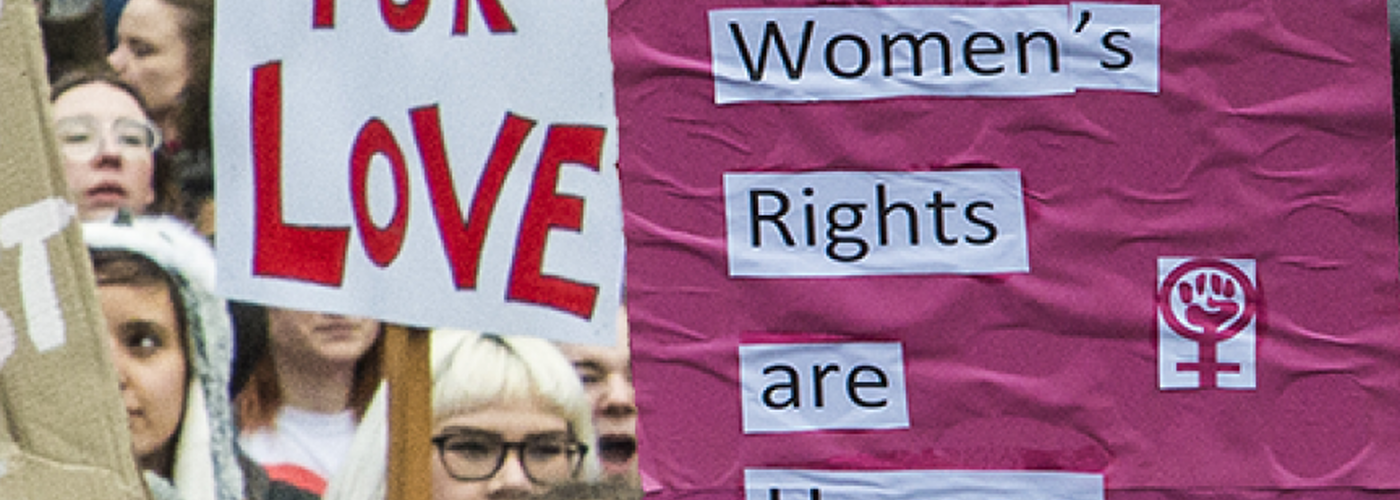“Things may actually be changing,” says L’Oréal Blackett
“It’s like women’s Christmas!” reads an enthusiastic text from a friend this morning. 'It really is', I think, as I look down at the ‘Girl Power’ t-shirt I chose to wear to work today. It’s the Women’s Day equivalent of an Xmas jumper and I’m feeling ‘festive’.
International Women’s Day is a day more than worth celebrating. On an international and local scale, we acknowledge the political, social, cultural and economic achievements of women from all walks of life and continue to push for progress for women’s rights. And while IWD has been observed since the early 1900s, in the age of #TimesUp and #MeToo the event feels much more about action than simple observation.
Consider last month here in Manchester, when around 2000 women gathered for Reclaim the Night to a take stand against sexual violence, to the unveiling of the Cities of Hope suffragette mural in the Northern Quarter, marking 100 years since some women won the right to vote. Undoubtedly, female liberation is at the forefront of public conversation and much is being done to keep it that way.
Manchester is a city is full of positive female representations.
They’re calling it a new-age ‘women’s movement’, with social media and those well-meaning hashtags being the main vehicle for encouraging widespread conversation and activism. Then there’s the Hollywood influence. Post Harvey Weinstein scandal (and the rest), once glamorous award ceremonies have taken a more serious tone. Take Oprah’s now legendary Golden Globes 2018 acceptance speech: “I want all the girls, watching here now, to know that a new day is on the horizon," she urged to rapturous applause. Even all the way here in Manchester - away from the Hollywood award ceremonies, #TimesUp black protest dresses and Weinstein-fuelled revolting - it feels like a brand new day.
I say this tentatively. All the loud and proud pro-woman social media activism does add an unintentional smokescreen - there’s still much to be done. Statistics are clear; one in four UK women experience domestic abuse, we’re still no closer to true parity between men and women’s wage packets – in fact, according to World Economic Forum's 2017 Global Gender Gap Report, we’re a good 200 years from achieving pay equality - one in five women have experienced sexual assualt, and, sadly, the issues do not end there.

Still, I’m reminded that in Manchester we’ve seen some progress throughout 2017 and the current year. There have been some significant ‘firsts’. Take the recent appointment of Esme Ward as director of Manchester Museums – the first woman to take the role in over a century – and the announcement of former Whitworth Art Gallery director, Dr. Maria Balshaw, as director of The Tate. Again, a role never represented by a woman before.
And there's more. The city is also witnessing a notable growth of women's participation in the tech industry (a widely underrepresented field) and young women in droves are choosing to study STEM subjects; Manchester University is continuing to exercise a zero-tolerance attitude to sexual harassment with its We Get It! campaign, while Manchester council recently passed a motion to ban Pro-Life protests outside abortion clinics – not only protecting women’s right to choose, but her dignity and privacy too.
And so on.
Whether in sport, finance, the arts and/or charity – Manchester is a city full of positive female representations. See our Manchester Women of 2017 list.
...the women’s movement is in danger of becoming a ‘trend’ and a parody of itself.

So what’s next to do?
It can’t be ignored that any conversation regarding women and women’s rights must be intersectional. Are women of colour, transgender women, women living with a disability and homosexual women included in the conversation? Are their voices being heard? Are they visible?
And what about men - where do their voices fit in? Through all the ‘where’s the International Men’s Day’ comments and the men sincerely afraid women have ‘banned flirting’, comes genuine male support. Leaving men out of the conversation benefits no one. After all, female liberation frees men too.
Naturally, there are accusations of mass hysteria and bandwagoning. Even my ‘Girl Power’ t-shirt is questionable and a result of very clever marketing. From Dior’s £500 ‘We Are All Feminist’ t-shirts to ‘lady-friendly’ crisps from Doritos, the women’s movement is in danger of becoming a ‘trend’ and a parody of itself.
Regardless, I’m proud today.
Women everywhere are emboldened to speak up about themselves and the issues that hinder our progression. In encouraging times like this, it really could be a new dawn and a new day.
Follow @LOreal_b on Twitter




